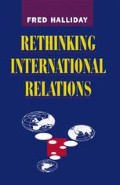Abstract
The fate of Marxism within the social sciences has, throughout the past century, been profoundly uncertain, an ambivalence that has in some respects been accentuated by the collapse of the communist movements, and of communist regimes, since the late 1980s. On the one hand, the challenge of Marxism to established patterns of thought, and to the existing state system, has led to its exclusion from the academic domain, an exclusion compounded by the dogmatisms, polemics and simplifications of Marxists seeking or holding political power. On the other hand, Marxism, itself part of the radical liberal tradition inherited from the Enlightenment, and a response, along with the recognisable academic disciplines of sociology and economics, to the rise of industrial society, has shared many areas of common ground with more strictly academic concerns and has in a variety of ways influenced their evolution. If in some areas this has led to the emergence of an identifiable ‘Marxist’ current within the social sciences, it has a broader influence, one of diffusion, so that approaches originally associated with Marxism have become more generally accepted. In this sense, in Gramsci’s phrase, Marxism has become ‘the common sense of our epoch’.
Preview
Unable to display preview. Download preview PDF.
Notes
Andrew Linklater, Beyond Realism and Marxism: Critical Theory and International Relations (London: Macmillan, 1990).
Karl Marx and Friedrich Engels, The German Ideology (London: Lawrence amp; Wishart, 1965) pp. 46–7.
Ralph Miliband, The State in Capitalist Society (London: Weidenfeld amp; Nicolson, 1969).
E.P. Thompson, Fred Halliday and Rudolf Bahro, Exterminism and Cold War (London: NLB, 1982).
Eric Wolf, Europe and The People Without History (Berkeley: University of California Press, 1982).
Perry Anderson, Lineages of the Absolutist State (London: NLB/ Verso, 1974).
Derek Sayer, The Violence of Abstraction (Oxford: Blackwell, 1987) for a non-reductionist interpretation of Marx.
Eric Hobsbawm, ‘Marx and History’, New Left Review, no. 143, January–February 1984.
Arno Mayer, Politics and Diplomacy of Peace-Making: Containment and Counter-Revolution at Versailles, 1918–1919 (New York: Knopf, 1967).
Author information
Authors and Affiliations
Copyright information
© 1994 Fred Halliday
About this chapter
Cite this chapter
Halliday, F. (1994). A Necessary Encounter: Historical Materialism and International Relations. In: Rethinking International Relations. Palgrave, London. https://doi.org/10.1007/978-1-349-23658-9_3
Download citation
DOI: https://doi.org/10.1007/978-1-349-23658-9_3
Publisher Name: Palgrave, London
Print ISBN: 978-0-333-58905-2
Online ISBN: 978-1-349-23658-9
eBook Packages: Palgrave Political & Intern. Studies CollectionPolitical Science and International Studies (R0)

